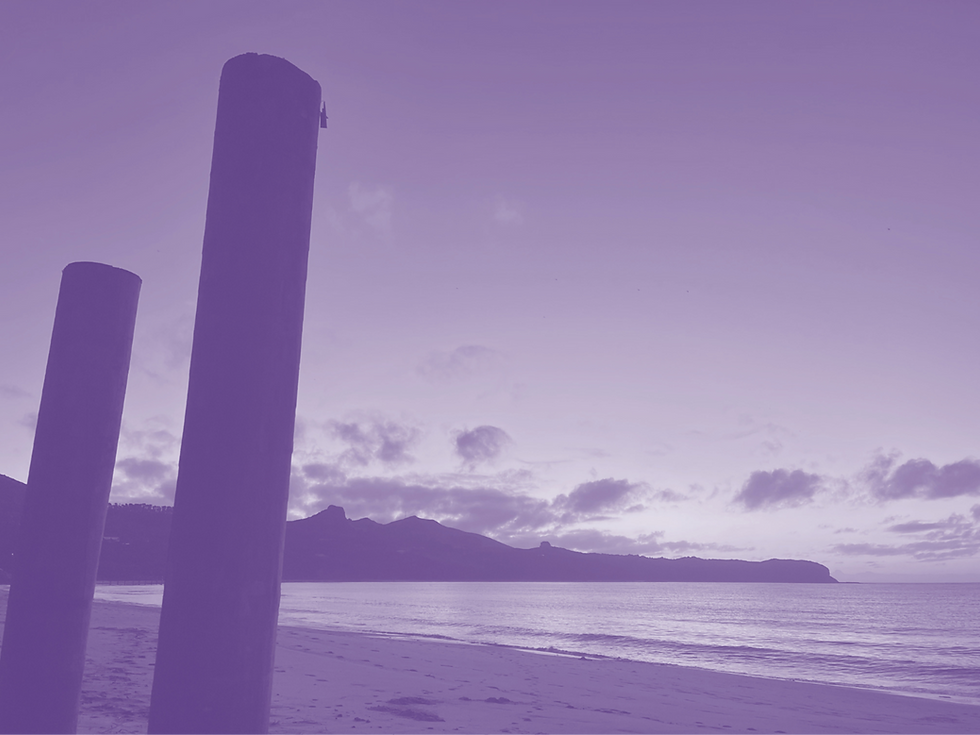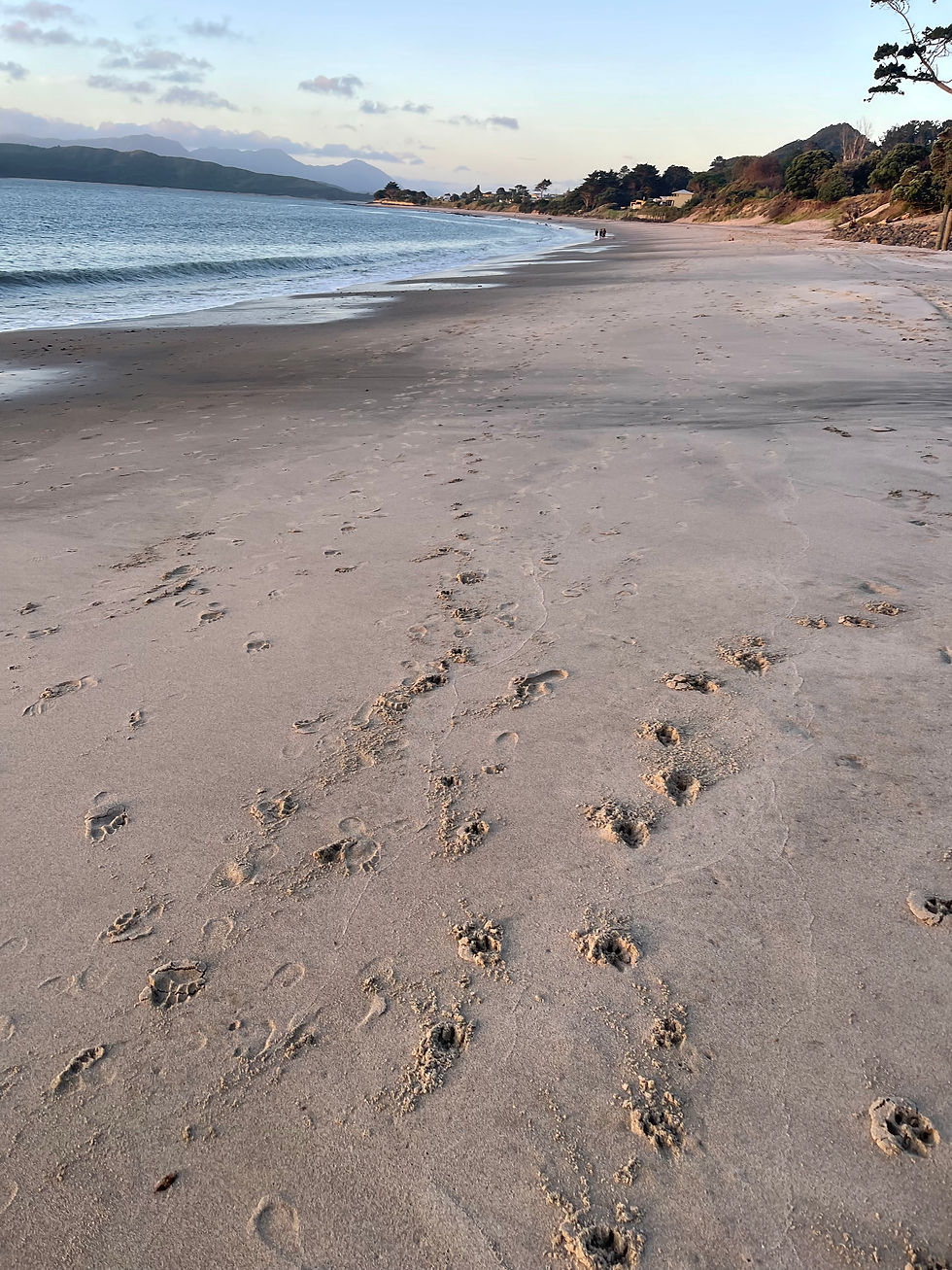We are born into the world by generations of sexual beings. From Tāne and Hineahuone through to our parents, whakapapa ties us together and provides space to see ourselves reflected in the generations before us, and generations to come. He momo tonu - true to form, we carry within us elements of our tūpuna in the fullness and diversity of their being. What is whakapapa? As Māori, whakapapa isn’t just family history. It encompasses our connections to tūpuna, whenua and whānau. Tane, one of the sons of Papatūānuku and Ranginui, is credited with creating the first human, a woman named Hineahuone. To give Hineahuone human life, he united the strands of ira atua and ira tangata and breathed life into her. Ira atua gave her a lineage from ātua and Ira tangata gave her a connection to future generations. Through Hineahuone, we inherit ira atua. Our whakapapa affirms our intrinsic value as the descendants of ātua. We also inherit ira tangata. Our whakapapa gives us significance, knowing we are special and belong unconditionally, through connections to past and future generations of our whānau. It can be hard being Māori Sometimes, racism and discrimination can make us feel like being Māori is bad. This isn't true! There is no one way of being Māori, and there are huge amounts of beauty, wisdom, joy and belonging to be found in our culture. Strengthening whakapapa Marae can be safe spaces to reconnect with whakapapa, reo and tikanga, that can help us to make meaning of who we are. They provide space where being Māori is comfortable, and our wellbeing is prioritised, but they aren't the only way to strengthen our whakapapa. Sometimes we may not be able to reconnect with our marae. Some people learn te reo Māori, connect through mahi toi, connect to te taiao or explore whānau connections. Connections to tūpuna and tūrangawaewae Connecting to our tūpuna can help validate us as descendants of people like us, who have faced similar challenges, and found ways through. We can learn from their journeys and the mātauranga or wisdom our tūpuna share with us. Learning their stories, and carrying with us the tools that we think would be helpful in our lives is a way to carry mātauranga through our whakapapa Connecting to our tūrangawaewae bring us into the spaces our ancestors used to be and can support our connection to them. These spaces can help us know that we belong, we are tangata whenua and we have a right to be ourselves in our own lands. These days many of us live in cities far away from the lands our ancestors roamed. Knowing our tūrangawaewae can connect us to the histories, lives and wairua of our tūpuna as we journey through different spaces in our lives. Dynamics of whanaungatanga Whanaungatanga are the things we do to make connections and strengthen our bonds with others in our community. Whanaungatanga gives us a safety net, help us work together, watch how people relate to others, and decide how we want to create relationships in our own lives. Validating our identities Knowing our whakapapa, our tūpuna, our tūrangawaewae and drawing on whanaungatanga can help us create our own pathways. Clearing space for us to be present and accepted within our whakapapa gives us space to be the expert in our own lives, exercise our mana, and choose what qualities and attributes can best serve us in different spaces, and into the future.
Whakapapa
Oriori were songs written for the birth of a child and sung to them as lullabies. They included descriptions of the environment at the time and place of birth. They also included the influence of atua, people who were present, and the attributes and qualities or gifts they imparted to the child to take with them. The meaning and intent behind the child’s name may also be revealed. People take oriori with them as a reminder of their uniqueness, potential, and the qualities and attributes they have inherited. Source – Munroe & Kohu Morgan (2006). Oriori A Lullaby. Go Tuatara Limited.
Oriori
Everyone is born with mana. Mana is the esteem we inherit at birth from our whakapapa to atua, tangata, and whenua. In our interactions with others, mana can be enhanced, nurtured, or strengthened. This might make us feel good. But we also need to be careful because others can strip, change, deplete, damage, or abuse our mana through their interactions with us. This might make us feel stink. It is important to notice the patterns of how we feel with different people because this can clue us into people are respecting our mana or not. Our mana can be strengthened by others who encourage us to use our voice to tell people about how we feel or give us support to realise our power to make decisions about our lives and enhance our sense of honour and authority. We can connect to our mana can through knowing who we are, where we come from, and why we are here.
Mana
Everyone is born with tapu. Tapu refers to the sacredness of our human lives, our bodies, interactions, and places. We can recognise the things that keep us safe and protected and set our boundaries as best we can. Tapu is often spoken about in relation to small elements of tikanga. For instance, it’s tapu to sit on the table because that can make us physically unwell. Our heads are tapu so it’s important to wear a helmet when are cycling in case we crash. Rahui are placed on an area when places become tapu to restrict people from accessing them, like when shellfish reserves are low and need to replenish to be available over a long term. There are some contexts where we automatically know what to do to protect ourselves. Some are more complex. Tapu can also be spoken about in relation to bigger aspects of tikanga. For instance, we might be under the protection of the atua in events like childbirth, warfare, or death. When we talk of tapu, we are talking about the spaces where we might be navigating unseen elements. Te whare tangata is tapu because it is the house of humanity, and the place where new life moves from te ao wairua into te ao mārama. As we become sexual beings we may get caught up in the joy of exploration rather than an awareness of our mana and tapu in relationships.
Tapu
Mātauranga Māori
In Ngāpuhi, people are often asked who they are through the phrase ‘ko wai koe?’ that literally translates to ‘from what waters do you descend?’ An understanding of who we are is informed by our relationships and connection to Aotearoa by the waka (canoe) our ancestors took to get here, our maunga (mountains), our moana (bodies of waters), and our ancestral and ongoing obligations in connection with iwi (tribe), hapū (sub-tribe) marae (ancestral meeting house), and tūpuna (primary ancestor). We understand the quality of our relationships with these objects, places and people through the notions of mana and tapu.
Ko wai koe?
Mātauranga Rohe
We often hear that gender and sexuality occur along a spectrum, but what does that mean? The easiest way to think of a spectrum is to think of a rainbow. We tend to think of them as separate colours so we can make sense of them, but really all of the colours blend seamlessly together. Sexuality and gender are the same. As a society, we notice the different qualities and attributes people have, but these differences aren't set in stone and can change over time or in different spaces. Gender and sexuality are also fluid, our tūpuna knew that over time we might change and grow into new ways of being and new ways of being attracted to one another. There is no right or wrong way to express your gender or sexuality. We are all unique and vibrant.
Spectrum
Tauiwi Knowledge
Mātauranga
about what it means to be you
_edited.png)

What it means to be you
Mātauranga
Mātauranga



The Top Tech Gifts
We are born into the world by generations of sexual beings. From Tāne and Hineahuone through to our parents, whakapapa ties us together and provides space to see ourselves reflected in the generations before us, and generations to come. He momo tonu - true to form, we carry within us elements of our tūpuna in the fullness and diversity of their being.
What is whakapapa?
As Māori, whakapapa isn’t just family history. It encompasses our connections to tūpuna, whenua and whānau. Tane, one of the sons of Papatūānuku and Ranginui, is credited with creating the first human, a woman named Hineahuone. To give Hineahuone human life, he united the strands of ira atua and ira tangata and breathed life into her. Ira atua gave her a lineage from ātua and Ira tangata gave her a connection to future generations.
Through Hineahuone, we inherit ira atua. Our whakapapa affirms our intrinsic value as the descendants of ātua. We also inherit ira tangata. Our whakapapa gives us significance, knowing we are special and belong unconditionally, through connections to past and future generations of our whānau.
It can be hard being Māori
Sometimes, racism and discrimination can make us feel like being Māori is bad. This isn't true! There is no one way of being Māori, and there are huge amounts of beauty, wisdom, joy and belonging to be found in our culture.
Strengthening whakapapa
Marae can be safe spaces to reconnect with whakapapa, reo and tikanga, that can help us to make meaning of who we are. They provide space where being Māori is comfortable, and our wellbeing is prioritised, but they aren't the only way to strengthen our whakapapa. Sometimes we may not be able to reconnect with our marae. Some people learn te reo Māori, connect through mahi toi, connect to te taiao or explore whānau connections.
Connections to tūpuna and tūrangawaewae
Connecting to our tūpuna can help validate us as descendants of people like us, who have faced similar challenges, and found ways through. We can learn from their journeys and the mātauranga or wisdom our tūpuna share with us. Learning their stories, and carrying with us the tools that we think would be helpful in our lives is a way to carry mātauranga through our whakapapa
Connecting to our tūrangawaewae bring us into the spaces our ancestors used to be and can support our connection to them. These spaces can help us know that we belong, we are tangata whenua and we have a right to be ourselves in our own lands. These days many of us live in cities far away from the lands our ancestors roamed. Knowing our tūrangawaewae can connect us to the histories, lives and wairua of our tūpuna as we journey through different spaces in our lives.
Dynamics of whanaungatanga
Whanaungatanga are the things we do to make connections and strengthen our bonds with others in our community. Whanaungatanga gives us a safety net, help us work together, watch how people relate to others, and decide how we want to create relationships in our own lives.
Validating our identities
Knowing our whakapapa, our tūpuna, our tūrangawaewae and drawing on whanaungatanga can help us create our own pathways. Clearing space for us to be present and accepted within our whakapapa gives us space to be the expert in our own lives, exercise our mana, and choose what qualities and attributes can best serve us in different spaces, and into the future.

Mātauranga

Matauranga Maori
Matauranga Maori
Tikanga
Tikanga helps us move through challenges in life and base our decisions on our values. Tikanga is often different across iwi and hapū, and sometimes changes over time. As Māori, we get to contribute and help shape tikanga to make sure that it supports and protects everyone. It is important that we bring aroha, tika, and pono into any relationship we have. This means acting with good intentions and out of love and kindness for people. We do what we know is right and aligned with our values. We are in relationships with people who we can be straight up and honest about how we really feel, but we still act with aroha in the ways we express ourselves. This extends from our family relationships, to our friend relationships, and through to our intimate relationships. This also extends to people we meet online, and who we might get to know behind our phones and computer screens. What examples do you have about being tika in relationships? What tikanga would you like to create for yourself in a relationship? What do you think is tika online? What do you think is not tika online?
Ngā piki me ngā heke
Life brings many ups and downs, twists and turns – ngā piki me ngā heke. We need to make sure that when we enter a relationship that we are with someone who we can move through the good times and the challenging times with. We need someone who will support us, want us to succeed in our goals, and to share in our dreams and life as a team, together. Sometimes we may grow in tandem with each other or sometimes we grow apart. It is important to recognise if we want to stay on the ride of ngā piki me ngā heke with that person. Sometimes, they might be the reason for the turbulence, and it is safer to part ways. It is really important that we don’t have someone who undermines our mana by tearing us down, doesn’t care about how we feel, and ignores our tapu. Mana is not a competition. As others are strengthened to grow their mana, our mana can grow alongside them. Haters to the left!
Tapu
We are social beings. We hold our own tapu and as we build relationships we need to be aware and respectful of the tapu of others. It’s important to carry aroha, tika and pono into these relationships but we also might sense when something doesn’t feel right. Some people might experience an off-kilter feeling in their tummy, or prickly feelings on their skin, or even feeling a cold sensation. This can be a starting point for knowing we may be stepping into a tapu space.There are many situations in life that might make us feel vulnerable so it is important to know we can feel that, we have a right to feel safe in trusting our instincts and make our own boundaries. If our instincts or feelings get too overwhelming, it’s good to talk to someone we trust who can help us through it. In sexual relationships, exploring our bodies is inherently tapu. This does not mean we are doing anything wrong, but that we should be aware of the potential of what we are doing. Are we navigating sexual relationships in ways that keep ourselves and others safe from sexually transmitted infections? Are we navigating sexual relationships in ways that keep ourselves and other safe from feeling taken advantage of? How can we hold conversations with others to let them know where our boundaries are, and to make sure we know where theirs are? How do we centre respect for the tapu of ourselves and others in our relationships?
Mana
We are social beings. We stand in our own mana, and as we build relationships we need to be aware and respectful of the mana of others. It is important to carry aroha, tika and pono into these relationships. We need to be honest, open, and recognise we have the capacity to hurt others and try not to do so. How we treat other people’s mana impacts our own. It is important to remember that we cannot stand strong in our own mana if we weaken it by attacking the mana of others. Restoring our mana does not have to involve retaliation but that doesn’t mean we have to accept situations or people who attack our mana. How do we make sure we support the mana of people who support us? How do we make sure we are not stepping on other people’s mana? How do we recognise when people do not have the best intentions for us and our mana?
Tikanga teach us about how to treat one another in Māori culture. How we interact with one another in a way that acknowledges their mana and tapu. How we move together in relationships through the ups and downs of life. Take a journey with us to explore more about relationship tikanga.
On this page you can explore cornerstone concepts, knowledges, practices, values and pūrākau from Te Ao Māori about sexual violence. Pūrākau like these help us to understand the dynamics of mana and tapu, and how we relate, enrich or diminish one another. Concepts from Te Ao Māori are noted in purple, concepts from specific iwi are noted in green, and social justice concepts that relate to our lives as Māori are noted in yellow.
He aha te kai I te rangatira? He korero, he korero, he korero
What is the food of chiefs? It is communication (Elder, 2020).
Good communication, internally and externally, is essential for a supportive and fulfilling relationship.


Puta ki te wheiao ki te ao mārama
Want to know more about relationship tikanga?
_edited.png)
Puta ki te wheiao ki te ao mārama
Want to know more about relationship tikanga?
Explore rangatahi pūrākau and enquiry questions that relate to relationship tikanga



